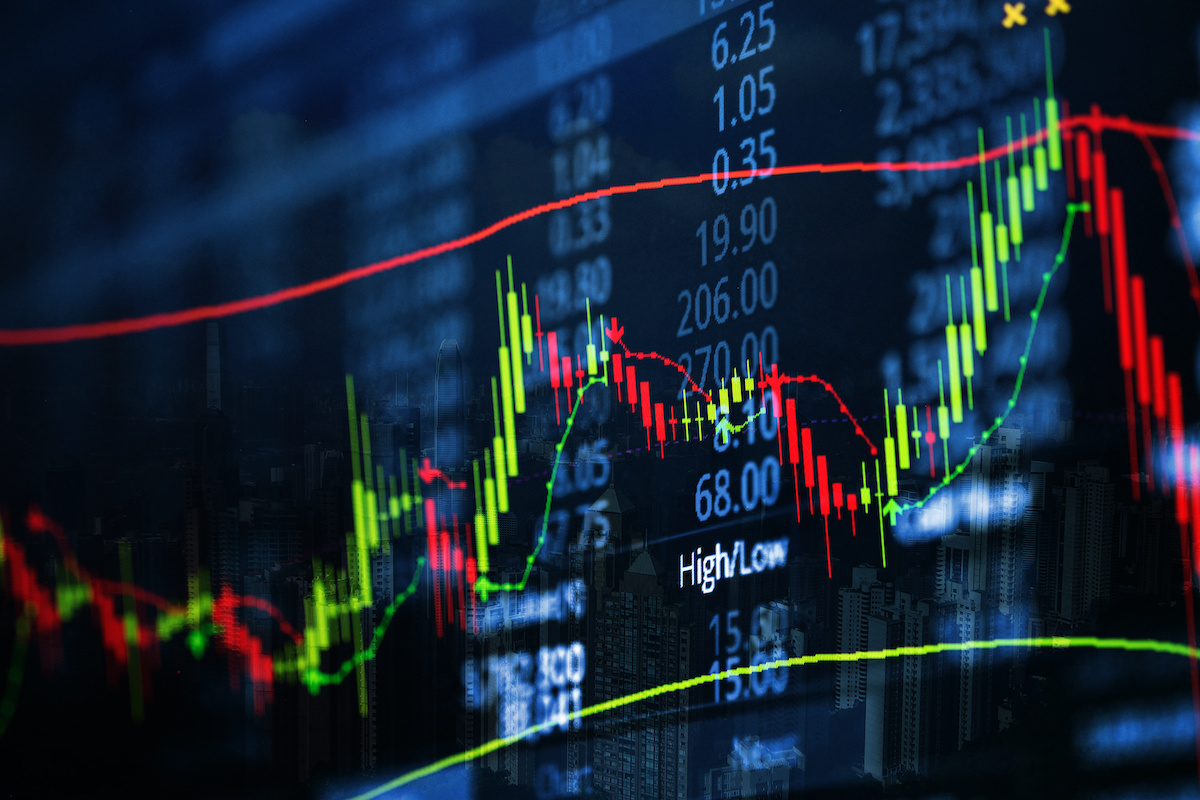Gradual Rate Cuts Appear More Likely
U.S. inflation in July fell to 2.9%, lower than the expected 3% which drove American stock prices higher on Thursday. Fed Chairman's speech at the central bank's annual symposium is anticipated on Friday, August 23, however Jerome Powell is not expected to confirm the scenario of a significant rate cut in September. Instead, analysts are now considering the possibility that the central bank might reduce rates gradually by 0.25% each month over the three consecutive months: September, October, and November. Following the recent massive stock sell-off on Wall Street, which caused significant drops in their values, there was speculation about a 0.5% rate cut in September. However, it now seems that investors may have overly focused on rising unemployment, which in itself does not necessarily signal an imminent recession. [2]
Concerns about recession diminish
U.S. stock markets managed to erase a substantial portion of previous losses over the past week, not only due to lower-than-expected inflation but also due to strong economic results from key companies across various sectors, particularly retail. For instance, major retailers like Walmart and Home Depot both exceeded analysts' expectations with their quarterly results, suggesting that despite falling inflation and rising unemployment, consumer activity in this sector remains robust. Evidence includes Thursday's data on U.S. retail sales, which rose by 1% compared to the previous month, whereas the consensus estimate was 0.4%. American benchmark indices S&P 500, Dow Jones Industrial Average, and Nasdaq Composite extended their gains by another day, with increases of 1.6%, 1.4%, and 2.3% respectively. For S&P and Nasdaq, this marked the eighth consecutive day in positive numbers.

Source: Investing.com*
European markets too enjoy a successful week
A more positive atmosphere also prevailed in European markets, led by technology stocks like ASML Holding and ASM International. Technology stocks are often the most sensitive to interest rate outlooks, and the recent market downturn affected them the most. Retail, automotive, and banking sectors also dominated. The revival was evident across all market segments, with the European STOXX Europe 600 index rising by 1.15% in Thursday's trading, marking its fourth consecutive day in profit and making the past week its most successful since early May. The British FTSE 100 index also had a successful week. * In the UK, retail sales data showed a month-over-month increase of 0.5% in July, and there is also a sign of slowing economic growth, with the preliminary GDP growth estimate for Q2 at 0.6%, compared to 0.7% in Q1. All these indicators, however, were in line with analysts' expectations.

Source: Investing.com*
Japanese Stocks Lead in Asia
Asia did not lag behind, with Japan’s main index, Nikkei 225, recovering to its June levels after the previous historic decline, closing Friday's trading with a 3.88% gain and 8% growth over the week, marking its best performance since April 2020. The Nikkei also outperformed Chinese and Hong Kong stocks, as the Hang Seng index gained 1.91% over the week, largely due to the performance of Chinese retail giant JD.com, listed on the Hong Kong Stock Exchange, whose quarterly results exceeded expectations. * In contrast, the results of the rival company Alibaba were disappointing. Both companies, however, indicate a slowdown in consumer spending in the domestic market. It is evident in particular from recent Chinese retail sales data, which, although up 2.7% year-over-year, higher than the expected 2.6%, shows a clear slowdown in the growth trend since November 2023.

Source: Investing.com*
Conclusion
In conclusion, markets are beginning to stabilize after the recent decline, with key economic indicators bringing optimism. While recession fears are diminishing, a gradual interest rate cut is expected, which could support further growth. Positive sentiment is evident not only in the U.S. but also in European and Asian markets, where stocks have recorded significant gains. Although some risks remain, current data suggest that the global economy might avoid the worst-case scenarios. [3]
Sources:
https://www.investing.com/news/economy-news/european-shares-tick-up-on-fed-cut-bets-3573000
https://www.investing.com/news/economy-news/uk-economy-expands-as-forecast-in-q2-3572968
https://tradingeconomics.com/united-kingdom/retail-sales
https://tradingeconomics.com/china/retail-sales-annual
* Past data is not a guarantee of future returns.
[1], [2], [3] Forward-looking statements represent assumptions and current expectations that may not be accurate or are based on the current economic environment, which is subject to change. These statements are not guarantees of future performance. Forward-looking statements inherently involve risk and uncertainties because they relate to future events and circumstances that cannot be predicted and actual developments and results may differ materially from those expressed or implied by any forward-looking statements.
Warning! This marketing material is not and should not be construed as investment advice. Past performance data is not a guarantee of future returns. Investing in foreign currency may affect returns due to fluctuations. All securities transactions may result in both gains and losses. Forward-looking statements represent assumptions and current expectations that may not be accurate or are based on the current economic environment, which may change. These statements are not guarantees of future performance. InvestingFox is a trademark of CAPITAL MARKETS, o.c.p., a.s. regulated by the National Bank of Slovakia.
 English
English
 Slovak
Slovak
 Czech
Czech
 Hungarian
Hungarian
 Italiano
Italiano
 Polish
Polish





